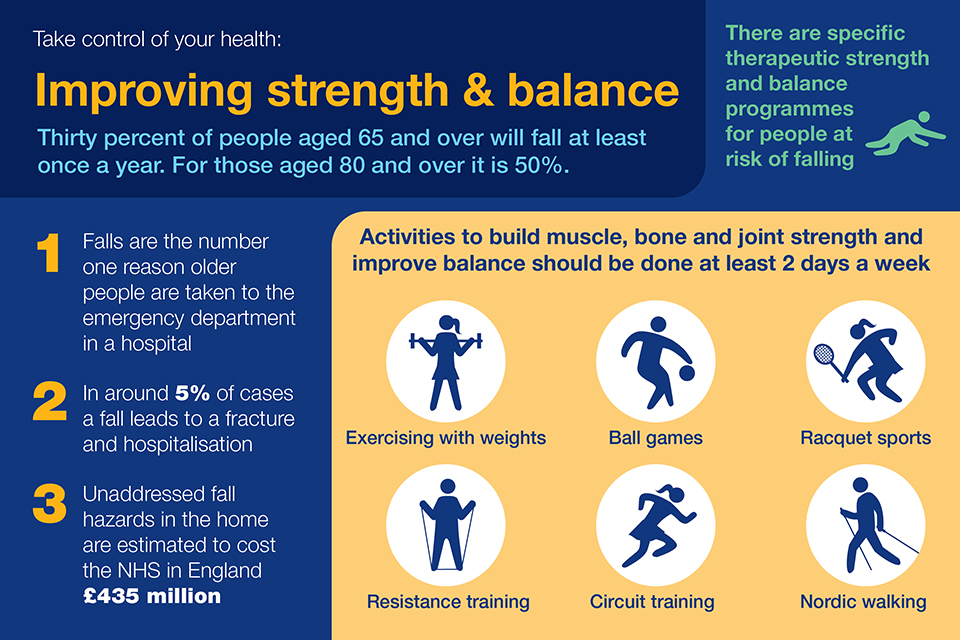The Greatest Guide To Dementia Fall Risk
The Greatest Guide To Dementia Fall Risk
Blog Article
Little Known Facts About Dementia Fall Risk.
Table of ContentsDementia Fall Risk Can Be Fun For AnyoneFascination About Dementia Fall RiskTop Guidelines Of Dementia Fall RiskEverything about Dementia Fall RiskThe 9-Minute Rule for Dementia Fall Risk
Nevertheless, based upon indicators and signs and symptoms, such as proof of head injury or a brand-new focal neurologic deficit, computed tomography or MRI of the brain may be shown - Dementia Fall Risk. An analysis for reasons for syncope need to be performed just if there is solid uncertainty, as when it comes to persistent, unusual drops
Medical care service providers use a loss threat evaluation to identify your risk variables for dropping and make practical suggestions. A fall threat analysis is essential because recognizing which aspects boost your chances of dropping assists you: Reduce your threat of dropping or hurting on your own.
Maximize your capacity to relocate and be active. Preserve a healthy and balanced, independent life. All adults 65 years and older should have a preliminary loss threat testing. Your medical care supplier might ask you whether you: Feeling unsteady when standing or strolling. Have actually fallen in the past year. Bother with falling. If you address yes to any one of these questions, your healthcare supplier will advise an extra, more complete examination.
The Greatest Guide To Dementia Fall Risk

Discover this detailed nursing care strategy and monitoring guide to properly stop risk for falls amongst patients. Obtain essential understanding about the nursing evaluation, taking care of diagnosis, and goals particularly tailored to individuals who go to threat for falls. A is defined as an event that leads to an individual coming to relax inadvertently on the ground or floor or various other reduced level (THAT, 2021).
Falling is the 2nd leading cause of fatality from unintentional injuries worldwide. It is click to investigate approximated that fall fatality rates in the United state
The Definitive Guide for Dementia Fall Risk
If this price proceeds, the CDC prepares for seven fall deaths every hour by 2030.
Every year, over 800,000 individuals are hospitalized due to falls. Registered nurses play a significant function in avoiding drops for their individuals via education and learning, evaluating fall risk, creating safer environments, and offering interventions in protecting against injuries from falls. A number of threat factors and problems add to content drops, including the following:. Matured 65 years and older; reduced limb prosthesis; use assistive devices such as pedestrian, crane, and wheelchair; living alone.
Client will show discerning avoidance steps. Client and caregivers will certainly carry out methods to enhance safety and prevent drops in the home. Autumns result from numerous variables, and a holistic method to the individual and setting is essential. Expect a person is taken into consideration at high danger for drops after the testing.
Little Known Questions About Dementia Fall Risk.
A requires making use of a validated tool that scientists have actually examined to be beneficial in calling the sources of falls in an individual. As an individual's wellness and circumstances modification, review is required. The degree of autumn threat can be determined utilizing the assessment of intrinsic and extrinsic variables. Standard assessment Recommended Reading tools can additionally be utilized (reviewed listed below).
Individuals are much more likely to fall again if they have sustained one or even more drops in the past six months. The older population is at enhanced risk of fall-related readmissions based on a study identifying the factors anticipating of repeat drops connected results (Prabhakaran et al., 2020).
The capability of individuals to secure themselves from falls is impacted by such factors as age and growth. Older people with weak muscles are extra likely to drop than those that preserve muscular tissue stamina, adaptability, and endurance.
The smart Trick of Dementia Fall Risk That Nobody is Discussing
Much less comparison level of sensitivity was quite associated with both increased prices of falls and various other injuries, while decreased aesthetic acuity was just linked with enhanced autumn price (Timber et al., 2011). Sensory perception of environmental stimuli is extremely important to safety. Vision and listening to impairment limit the individual's capacity to perceive risks in the surroundings.
Older grownups that have inadequate equilibrium or difficulty walking are more probable to drop. These problems may be connected with lack of workout or a neurological reason, joint inflammation, or various other medical problems and therapies. An important danger aspect highlighted in a research is that adults with rheumatoid joint inflammation go to high threat of drops, consisting of inflamed and tender lower extremity joints, tiredness, and use psychotropic drugs (Stanmore et al., 2013).
Report this page